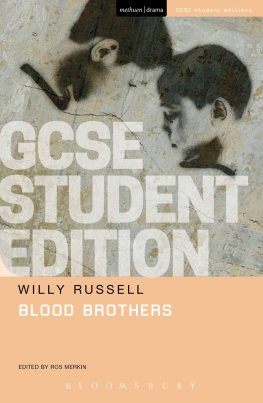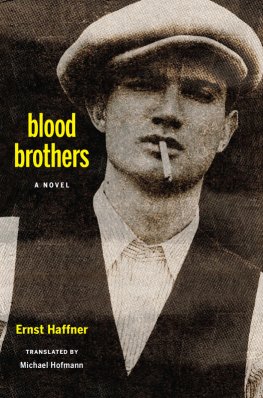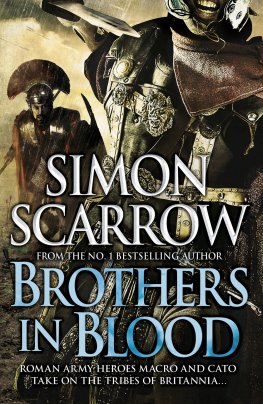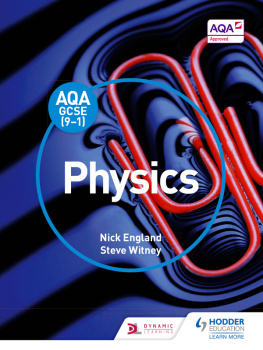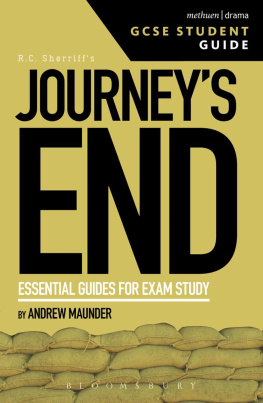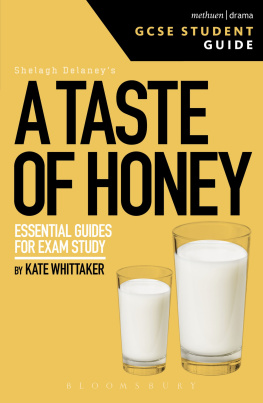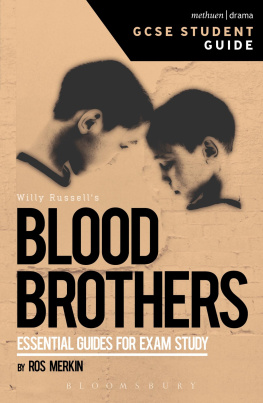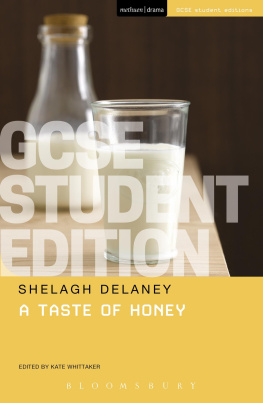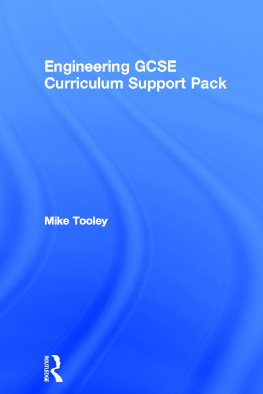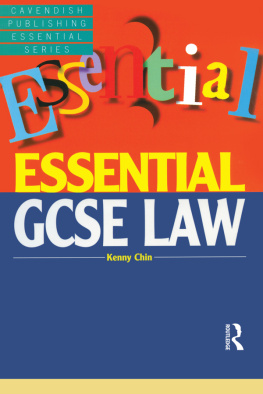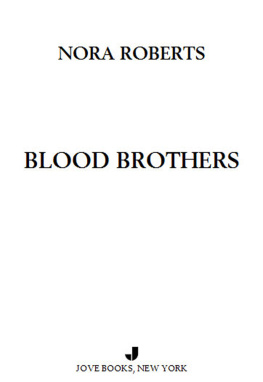Willy Russell - Blood Brothers GCSE Student Edition
Here you can read online Willy Russell - Blood Brothers GCSE Student Edition full text of the book (entire story) in english for free. Download pdf and epub, get meaning, cover and reviews about this ebook. year: 2016, publisher: Bloomsbury, genre: Non-fiction. Description of the work, (preface) as well as reviews are available. Best literature library LitArk.com created for fans of good reading and offers a wide selection of genres:
Romance novel
Science fiction
Adventure
Detective
Science
History
Home and family
Prose
Art
Politics
Computer
Non-fiction
Religion
Business
Children
Humor
Choose a favorite category and find really read worthwhile books. Enjoy immersion in the world of imagination, feel the emotions of the characters or learn something new for yourself, make an fascinating discovery.
- Book:Blood Brothers GCSE Student Edition
- Author:
- Publisher:Bloomsbury
- Genre:
- Year:2016
- Rating:4 / 5
- Favourites:Add to favourites
- Your mark:
- 80
- 1
- 2
- 3
- 4
- 5
Blood Brothers GCSE Student Edition: summary, description and annotation
We offer to read an annotation, description, summary or preface (depends on what the author of the book "Blood Brothers GCSE Student Edition" wrote himself). If you haven't found the necessary information about the book — write in the comments, we will try to find it.
Blood Brothers GCSE Student Edition — read online for free the complete book (whole text) full work
Below is the text of the book, divided by pages. System saving the place of the last page read, allows you to conveniently read the book "Blood Brothers GCSE Student Edition" online for free, without having to search again every time where you left off. Put a bookmark, and you can go to the page where you finished reading at any time.
Font size:
Interval:
Bookmark:
Blood Brothers
GCSE Student Edition Willy Russell is one of the most-produced playwrights of his time. He has written a large number of highly successful plays and musicals for stage and TV including John, Paul, George, Ringo and Bert (1974), Breezeblock Park (1975), One for the Road (1976), Our Day Out (television 1977; stage musical version 1983), Stags and Hens (1978; filmed as Dancin thru the Dark , 1990), Educating Rita (1979), Blood Brothers (1981; musical version 1983), and Shirley Valentine (1986). His novel, The Wrong Boy , was published to great acclaim in 2000. Ros Merkin is Reader in Drama at Liverpool John Moores University. She has written and edited books and articles on local and regional theatre including Liverpool Playhouse at 100: A Theatre and its City (Liverpool University Press, November 2011); The Glory of the Garden: English Regional Theatre Since 1984 (co-edited with Kate Dorney; Cambridge Scholars Press, 2010); Liverpools Third Cathedral: the Liverpool Everyman Theatre In the Words of Those Who Were, and Are, There (Liverpool and Merseyside Theatres Trust, 2004); and Liverpool in The Cambridge Companion to Theatre History (David Wiles and Christine Dymkowski, Cambridge University Press, 2012). B. B.
Priestleys An Inspector Calls by Philip Roberts R. C. Sherriffs Journeys End by Andrew Maunder Charlotte Keatleys My Mother Said I Never Should by Sophie Bush Shelagh Delaneys A Taste of Honey by Kate Whittaker  Contents Blood Brothers was commissioned in 1981 for a schools tour by Merseyside Young Peoples Theatre. This first version had only one song (Marilyn Monroe) and was performed in the round, with the audience sitting on all four sides. The story was different, too, with Sammy telling Mickey about Linda and Edwards affair and Mrs Lyons shooting the twins. Before this, Russell had been writing for the Liverpool Everyman Theatre where his work included John Paul, George, Ringo and Bert (1974), his story of what the Beatles had meant, where the songs were used dramatically and were sung by Barbara Dickson, who was later to play the role of Mrs Johnstone.
Contents Blood Brothers was commissioned in 1981 for a schools tour by Merseyside Young Peoples Theatre. This first version had only one song (Marilyn Monroe) and was performed in the round, with the audience sitting on all four sides. The story was different, too, with Sammy telling Mickey about Linda and Edwards affair and Mrs Lyons shooting the twins. Before this, Russell had been writing for the Liverpool Everyman Theatre where his work included John Paul, George, Ringo and Bert (1974), his story of what the Beatles had meant, where the songs were used dramatically and were sung by Barbara Dickson, who was later to play the role of Mrs Johnstone.
The show transferred to Londons West End where it played for a year. This was followed, at the Everyman, by Breezeblock Park (1975) and Stags and Hens (1978; later filmed as Dancin thru the Dark ), both plays about people trying to escape from their surroundings, a theme he returns to many times in his writing. He was also writing dramas for schools television (he had been a teacher before starting to write for theatre) and Our Day Out (1977), a play with songs about the Progress Classs day out in Wales, started life as a television play before becoming a stage musical in 1983. One of his best known plays, Educating Rita (1980 and filmed in 1983) was only one of two of his plays that premiered outside his home city of Liverpool, starting life at the Royal Shakespeare Company. The other non-Liverpool premiere was One for the Road , which was commissioned by the Contact Theatre in Manchester in 1976. The musical version of Blood Brothers premiered at Liverpool Playhouse in January 1983 and transferred to the Lyric Theatre in the West End the same year where it ran until October, winning four awards for best musical.
Two national tours followed in 1984 and 1987 and then the show returned to London where it ran for twenty-four years from 1991 until 2012, becoming the third longest running musical in the West End (only Les Miserables and Phantom of the Opera have, currently, run for longer) achieving in excess of 10,000 performances. It has been translated into over twenty languages and opened on Broadway in 1993. It has been performed in many European countries as well as in Australia (where Russell Crowe played Mickey), Mexico, Japan, Korea and Canada. In 2013, Blood Brothers , was adapted for South Africa (the first time Russell has allowed this to happen) and set in the Cape coloured community of Johannesburg adopting a mix of Afrikaans and English as well as bringing some of the rhythms and instrumentations of the area to the musical arrangements. After Blood Brothers , Russell wrote Shirley Valentine (1986) for the Everyman Theatre, which was filmed in 1989. He has also published a novel The Wrong Boy (2000), released an album Hoovering the Moon (2003) and toured both with Words on the Run (1995; with Roger McGough, Brian Patten, Adrian Henri) and with Other Words (2004 with fellow playwright Tim Firth).
There have also been re-mixes (Russells name for his rewrites) of both Stags and Hens (2008) and Our Day Out (2009 and 2010) both performed at Liverpools Royal Court Theatre, Stags and Hens being one of the shows marking Liverpool being Capital of Culture in 2008. Superstition or class? The final question posed by the narrator juxtaposes superstition and class suggesting they are important ideas in the play. Throughout the play, it is the narrator who reminds the audience about superstitions but it is Mrs Johnstones belief in superstitions (although she denies it) that allows the tragedy to unfold. Having shown Mrs Lyons that she is superstitious when she reacts fearfully to new shoes being put on the table, Mrs Lyons then uses this fear to create a story that sounds like a mythical tale telling of the disastrous consequences of twins who have been parted discovering the truth. Important here is the question of belief . If Mrs Johnstone did not believe in superstition, then she may well have just told the twins who they were when they first meet.
Instead, she is fearful that something bad will happen if she does and so the inevitable chain of events unfolds. Superstitious beliefs also start to control Mrs Lyons; she is disturbed when Mr Lyons puts shoes on the table, she thinks Mrs Johnstone is haunting her and she is finally driven mad by her obsession with keeping the twins apart. Edward, too, starts to believe in superstitions (he tells his mother not to look at the magpie because it means sorrow) suggesting the growing influence of the Johnstone family on him. Class is the other side of the question and the impact of the class you are born in to is shown by comparisons of how people live their lives, from how they speak and behave to the opportunities and education that they have. The Johnstones are working class, living in a terraced house and then on an estate. The Lyons are middle class living in a big house by the park and then in a house on the hill.
Comparisons between the classes are evident throughout in the parallels between Mrs Johnstone and Mrs Lyons and in the lives of the twins. The parallel school scenes are one good example of the differences. Whilst Edward is at a private boarding school where he is doing very well and goes to University, Mickeys school is all boredom and futility where he does not learn anything that will be useful for him when he leaves (8889). The suggestion is that Edward goes on to get a well-paid management job (he can find a house and a job for Mickey) but Mickey goes into a manual job making cardboard boxes. People from different classes are also shown to be treated differently in the scenes with the policeman. Mickey is seen to be disadvantaged by his social class, having few opportunities in life, putting the blame for what happens on an unequal society that does not offer people equal chances in life.
Connected to class is the question of whether nature (genetic make-up) or nurture (upbringing) affects chances. As twins, Edward and Mickey could be seen to be genetically identical (genetics is a complex and still developing area of science and ideas keep advancing). This suggests that the differences between them must be down to their upbringing. Mickey is lively and demanding; he asks Edward for sweets and then cigarettes when they meet suggesting he has freedom in his upbringing but also does not have very much. Edward is polite and offers sweets willingly suggesting a stricter upbringing but where he has always had everything that he wants. There are also suggestions that nature is important too.
Next pageFont size:
Interval:
Bookmark:
Similar books «Blood Brothers GCSE Student Edition»
Look at similar books to Blood Brothers GCSE Student Edition. We have selected literature similar in name and meaning in the hope of providing readers with more options to find new, interesting, not yet read works.
Discussion, reviews of the book Blood Brothers GCSE Student Edition and just readers' own opinions. Leave your comments, write what you think about the work, its meaning or the main characters. Specify what exactly you liked and what you didn't like, and why you think so.

